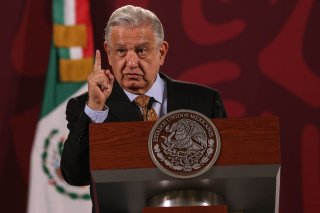Keeping Mexico’s Democracy Strong: Why Supporting the National Electoral Institute Matters
Transparency and accountability of Mexico’s elections are now at stake.
Let the challenges begin. The recent decision by Mexican legislators to cut the budget and staff of the thirty-three-year-old National Electoral Institute (INE) has sparked widespread protests and garnered front-page coverage worldwide. “Plan B,” which was recently approved by the Mexican Senate, includes provisions that could undermine the independence of the INE and limit its ability to carry out its work effectively. This decision is a concerning development for Mexico’s democracy, which has long relied on the agency to promote transparency, accountability, and free and fair elections. After President Andrés Manuel López Obrador’s decision to publish the electoral reform in the official gazette on March 1, the electoral reform entered into force on March 3, 2023.
Specifically, the law would give the Mexican government greater control over the INE’s budget and staffing decisions, undermining the agency’s independence. The law would also establish new social media and online campaigning regulations that some critics have argued could limit freedom of speech and the ability of opposition parties to reach voters and participate in the electoral process.
During the 2018 elections, the INE implemented several measures to promote transparency and accountability in the electoral process. For example, the agency developed a new system for tallying votes that allowed results to be reported in real-time. It also implemented new campaign financing regulations that limited the amount of money that candidates could spend on their campaigns. Additionally, the INE conducted a comprehensive voter education campaign to increase voter turnout and ensure that voters were informed about the issues and candidates in the election.
But this progress could be at stake for the next presidential election cycle, which officially starts on September 2 of this year, and coincides with the United States’ own election cycle. Importantly, the Mexican constitution states that there can be no changes to the Mexican electoral law in the 90 days leading up to the date when the electoral season officially kicks off. Therefore, any attempts by the opposition and civil society to push back against the reform must happen in the next six months. The Mexican Supreme Court is poised to continue playing an important role in promoting the integrity and independence of the electoral process in Mexico and in ensuring that the agency can carry out its work effectively, especially as the window for challenges to the reform is purposefully short.
It is critical for the international community—especially the United States—to continue supporting and assisting the INE and civil society organizations on the ground. One important way to do so is through financial and technical assistance—via non-profits that support free and fair elections worldwide, like the International Foundation for Electoral Systems—by working with local partners. The United States, via USAID or the Department of State, can als assist with funding for election monitoring and technical assistance to help the INE carry out its work effectively. And the U.S. Congress can earmark appropriations that tick these boxes.
Ultimately, promoting free and fair elections in Mexico will require a sustained commitment from all stakeholders to protect the independence of the agency and other sister institutions and to ensure that the electoral process is transparent and accountable. The recent developments surrounding the electoral reform bill highlight the urgent need for continued vigilance and action to protect democracy in Mexico, especially given our shared border. By assisting, whether financial or technical, promoting the development of a robust and independent civil society, and supporting the work of the Mexican Supreme Court, we can help ensure that Mexico’s democracy remains strong and vibrant. The recent protests and front-page stories about the INE’s budget cuts and staff reductions highlight the urgency of this issue, which is now official in all but the two Mexican states with upcoming local elections, and why it matters not just to Mexico but to the entire world.
Maria Fernanda Bozmoski is deputy director for programs at the Atlantic Council’s Adrienne Arsht Latin America Center. @MariaBozmoski
Image: Shutterstock.

